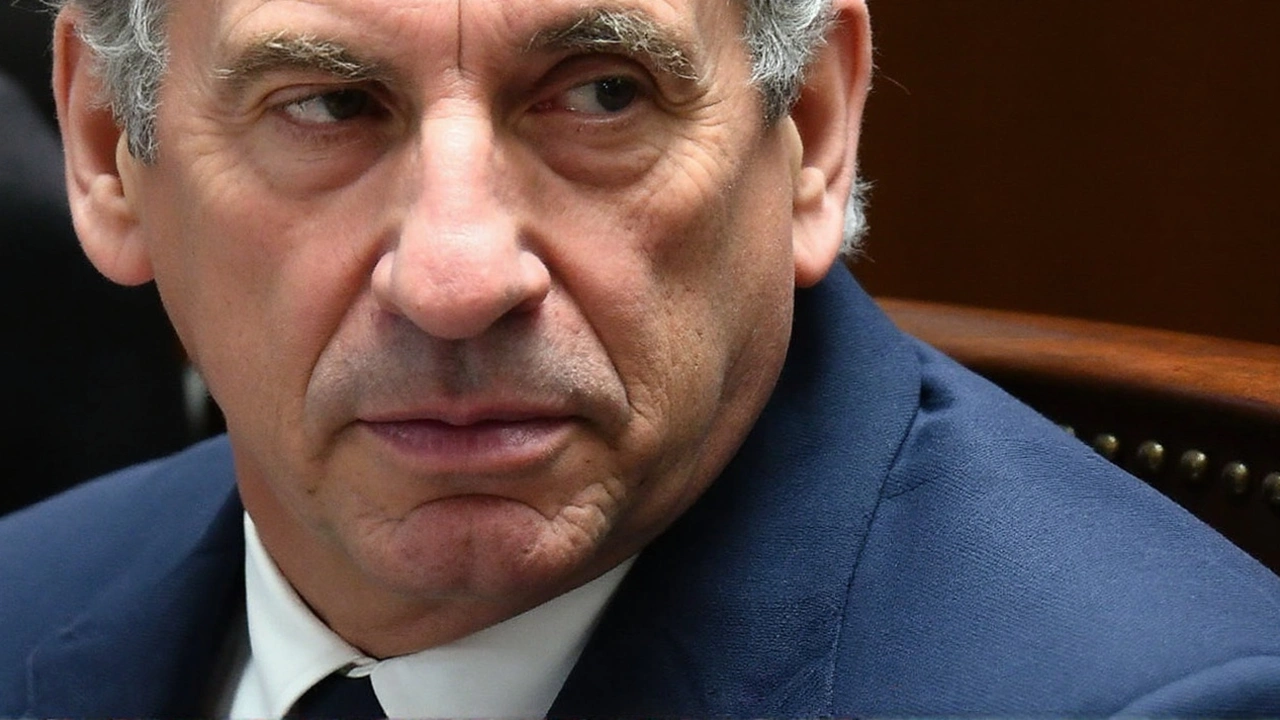Bayrou falls after a high‑risk confidence gamble
France is headed for its sixth prime minister in two years after François Bayrou lost a confidence vote on Monday, the latest casualty of a hung parliament that has tied Emmanuel Macron’s presidency in knots. Bayrou, 74, staked his government on a plan to cut €44 billion from the 2026 budget. Lawmakers called his bluff.
The Prime Minister triggered the vote under Article 49 of the Constitution, a hardball move that dares parliament to either back the government or bring it down. He framed it as a necessary shock to a system living beyond its means. “The biggest risk was not to take one,” he told deputies before the vote. In a stark warning, he added: “You have the power to overthrow the government, but you do not have the power to erase reality.”
That “reality,” as Bayrou sees it, is a balance sheet turning from bad to worse. France’s public debt has climbed past €3 trillion, around 114% of GDP as of the first quarter of 2025. The Cour des Comptes, the national audit office, projects debt service costs could top €100 billion by 2029, up from €59 billion in 2024. The deficit, nearly €169 billion or 5.8% of GDP, is almost double the European Union’s 3% limit.
Bayrou’s defeat is a blow to Macron’s already fragile authority. Since losing his absolute majority in the National Assembly in 2022, the president has survived on tactical votes, ad‑hoc alliances, and constitutional tools that keep bills moving but inflame opposition. The churn at the top has become relentless. Bayrou had lasted just nine months. His predecessor, Michel Barnier, also fell in less than a year, underscoring how little room any prime minister has to govern in this parliament.
The fiscal stakes are not abstract. France faces tighter EU oversight when deficits breach the 3% ceiling. That can mean binding corrective plans and more scrutiny of budgets from Brussels. Investors watch for signs of resolve: whether Paris can slow spending, raise revenues, or both, without stalling growth or prompting unrest.
Bayrou argued his package was the start of that adjustment. It mixed spending restraint with structural savings meant to bend the cost curve over several years. He hinted that avoiding painful choices would be far more costly later, when higher interest payments crowd out public services and investment. But the arithmetic in parliament, not the spreadsheets, decided his fate.
The collapse lands at the worst possible moment in the French calendar. Early September—La Rentrée—is when schools reopen, budgets are drafted, and parties set priorities. Instead of mapping a path to fiscal repair, Paris is scrambling for a new leader and a fresh cabinet, with another budget cycle bearing down.
In a brief statement, the Elysée said Macron will name a new prime minister “in the next few days.” That keeps the government running, at least on paper. In practice, France shifts into caretaker mode until a successor is installed and a program is negotiated. Every week lost now makes the fall budget timetable harder to hit.
Why did Bayrou’s bid fail? Start with the map of the lower house. Macron’s centrist alliance is the largest force but doesn’t control a majority. To legislate, the government needs votes from the right or parts of the left—or it must gamble on confidence tactics that can blow up. Opposition blocs, from the left to the far right, have found rare unity in resisting austerity framed from above.
That resistance hardened after repeated use of constitutional shortcuts in recent years, including to pass contentious pension changes. The tool Bayrou invoked is legal, but politically toxic. Every time a prime minister ties survival to a bill, it makes compromise harder the next time around.
It’s not just domestic. The ripple effects matter in Brussels and beyond. A shaky France complicates the EU’s push to coordinate defense procurement, energy policy, and the bloc’s response to U.S. industrial subsidies. Marie Demker, a political science professor at the University of Gothenburg, warned that an unstable Paris can slow EU decision‑making “at exactly the moment unity is most needed.”
Bond markets are watching as well. France’s borrowing costs have risen from ultra‑low levels, and the spread to German Bunds is a rough gauge of investor nerves. Ratings agencies have flagged fiscal slippage before. Whether they escalate their concerns will depend on what the next government puts on the table—and whether parliament buys in.
There’s also the politics of pain. Big, broad cuts are easy to oppose and hard to execute. Targeted reforms that deliver savings over time—procurement fixes, duplicative agency mergers, smarter tax compliance—are less dramatic but often more durable. The problem is that durable reforms take patience, and this parliament has been short on that commodity.
What happens next? Macron has three immediate paths:
- Appoint a new prime minister and attempt another cross‑party pact to pass a budget and a narrow reform slate.
- Try a technocratic cabinet focused on fiscal repair, betting that parties won’t risk toppling a neutral team before markets calm.
- Dissolve the National Assembly and call snap elections—a constitutional option, but a roll of the dice that could return an even more fractured chamber.
The Elysée is signaling the first option for now: continuity where possible, new faces where necessary. But any prime minister will confront the same math Bayrou did. Without a stable governing majority, each budget line becomes a battle, and every battle threatens the cabinet’s survival.
Meanwhile, the policy clock keeps ticking. The finance ministry has to finalize spending ceilings, negotiate with line ministries, and anchor the next multi‑year fiscal plan. If those pieces slip, France risks a stop‑start process that spooks markets and narrows choices later in the year.
The social climate matters too. Unions have warned against “budgetary brutality.” Local governments, dealing with higher energy and construction costs, push back when Paris squeezes transfers. Hospitals and schools, still catching up from years of strain, resist top‑down savings targets. A government that cannot explain where and why it is cutting will struggle to carry the country with it.
Bayrou’s short tenure will be remembered for its wager: confront the numbers head‑on, even if it costs the job. His argument that “reality will remain inexorable” now becomes the next prime minister’s starting point. The hole is no smaller because the messenger changed.
For Macron, the political challenge is layered. He needs to show fiscal credibility to Europe and investors without losing domestic legitimacy. He needs to stabilize the executive while working with a legislature that rewards obstruction. And he needs to do it fast, with the budget season already under way.
France has done hard fiscal repairs before. It usually takes a broad pact and a clear narrative about fairness: who pays what, and when better days arrive. In the current parliament, building that pact means persuading skeptical deputies across several parties that the alternative—drifting into higher debt service and lower room for investment—is worse.
The question for Brussels is whether France can still be the engine of consensus on big EU files while it fights fires at home. On defense coordination, industrial policy, and trade, Paris is a central player. If ministers spend their time counting votes in the Assembly, those files slow down. That’s the risk Demker and others are flagging.
Investors, for their part, will look for signals in three places: the OAT‑Bund spread, the tone from ratings agencies, and the credibility of the next fiscal plan. Clear targets that phase in savings, protect growth‑friendly investment, and improve tax compliance tend to calm nerves. Vague promises to “find efficiencies” do not.
The calendar forces a decision. Macron says he will name a new prime minister within days. That nominee will have to present a program to the Assembly, assemble a cabinet, and strike at least a working truce with parts of the opposition. Even then, the risk of another confidence showdown is baked in.
Monday’s vote made one thing impossible to ignore: the France political crisis is now a budget crisis, and the budget crisis is now a political one. The lines blur because they’re the same problem—how to govern in a legislature that won’t coalesce, with numbers that won’t balance themselves.
France can still write a credible plan. It will take a prime minister who can sell specifics, not slogans; a president willing to pick a few big fights rather than many small ones; and a parliament that, at least for a season, prefers governing to grandstanding. That’s a tall order. But the alternative, spelled out in Bayrou’s valedictory warning, is letting the math do the governing instead.


